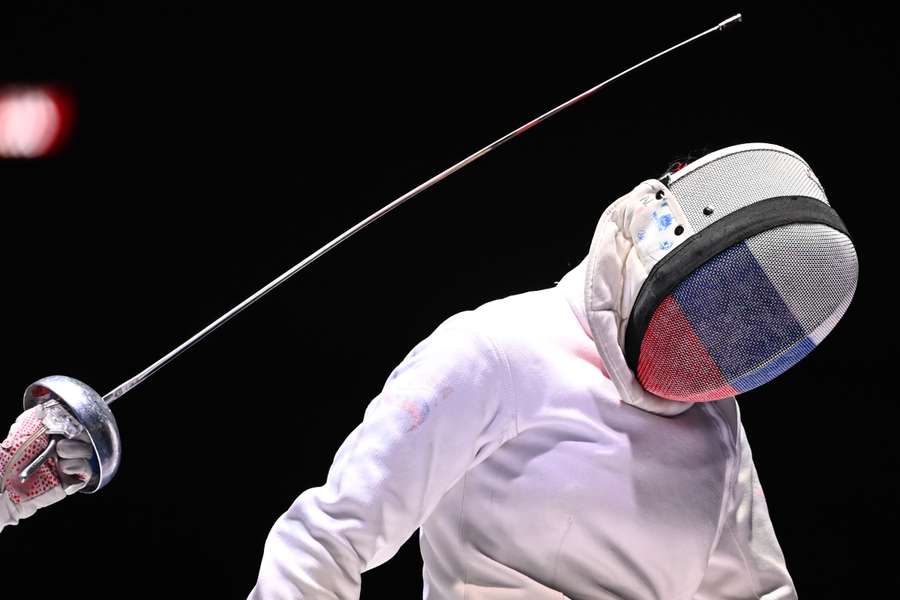Russia's Olympic fencing hopefuls left in limbo ahead of qualifiers

Last month's decision by the International Fencing Federation (FIE) made fencing the first Olympic sport to re-open its events to athletes from Russia and ally Belarus.
It generated outrage in Ukraine, a hard-hitting petition to uphold the ban and a raft of competition cancellations in countries opposed to hosting Russian or Belarusian fencers.
"There has to be a limit to these absurdities," Ilgar Mamedov, the head of Russia's Fencing Federation, told AFP on the sidelines of a fencing competition this weekend in the Russian city of Kazan on the Volga River.
Excluded from other events, some of Russia's Olympic hopefuls were taking part in the competition - entitled the "Friendship Cup" alongside athletes from Armenia, Serbia and Vietnam.
"Athletes need to understand where they stand - if they can take part or not" in qualifying events for the Olympic Games in Paris next year, Mamedov said, as he watched an epee bout.
Athletes from Russia and Belarus have faced differing sanctions from a multitude of sports since Russia launched its assault on Ukraine in February last year.
Following the FIE ruling, more than 300 active and former fencers have written to ask IOC president Thomas Bach - who won Olympic fencing team gold in 1976 - to continue the exclusion.
All eyes are now on Poland which is due to hold a women's foil competition in Poznan later this month, the first qualifying event for next year's Olympics.
At the event in Kazan, Russia's fencers expressed their hopes of re-joining international competitions.
"I would love to go to the Games," said Russia's current epee champion Aizanat Murtazaeva, 21.
Fourth-placed at the Tokyo Olympics in 2021, she said that this time she would like to "come back with a medal" from Paris.
Anastasiia Rustamova, who won the European junior championships aged 16 in February 2022, said she was also keen.
"We are moving forward, we are getting stronger. We are going to win the Olympics!" she said.
'Best athletes'
The International Olympic Committee on March 28 recommended the return to competition of Russian and Belarusian athletes as individual neutrals but refused to give a timeline on their potential participation at the Paris Olympics.
The IOC said athletes "who actively support the war" would be banned, as well as "athletes who are contracted to the Russian or Belarusian military or national security agencies".
Russian Olympic chiefs branded the conditions "discriminatory".
Russian sporting clubs CSKA and Dynamo - both linked to the Russian army - have been training grounds for some of the country's best athletes for decades in a variety of disciplines.
"Our best athletes have come either from CSKA or Dynamo," Mamedov said.
This is the case, for example, for double Olympic champion in sabre Sofya Velikaya, or Pavel Sukhov and Sergey Bida, who won silver in team men's epee in Tokyo in 2021.
While Russian fencers still do not really know if they have been reintegrated or not, several European countries have been cancelling events in protest.
France became the latest to do so on Friday when it cancelled this year's Challenge Monal.
The French Fencing Federation said it was "not able to honour the requests" of the FIE on Russian and Belarusian fencers.
Competitions have also been called off in Denmark and Germany.
The Danish fencing federation said the situation was a "mess".
"We also predict chaos at the international competition since fencers will probably refuse to fence with Russian and Belarussian fencers," said Jan Sylvest Jensen, the head of the Danish fencing federation.
But for Russian fencing chief Mamedov, the key question is: "How can the exclusion of Russian athletes help Ukraine?"

